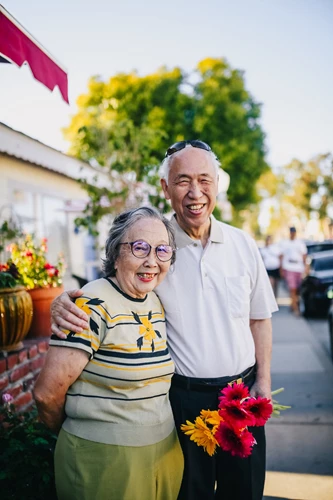 Here's another overly broad ASWB exam outline item for review: Gerontology.
Here's another overly broad ASWB exam outline item for review: Gerontology.
"Gerontology?!" you may ask. "All of it? People get master's degrees in gerontology. Do I need to get another master's?" Answer: no. But it may be helpful to peruse the material below to ready yourself for a social work exam question on the topic.
Gerontology Basics
Gerontology is the multidisciplinary study of the aging process and the challenges and issues associated with it. Professionals in the field of gerontology work to understand the physical and mental changes that occur as individuals age, as well as the social and cultural factors that influence the aging experience.
Key areas of focus within gerontology include:
-
Biological Aging: Examining the physiological changes that occur in the body as a person ages, such as changes in organ function, cellular activity, and the impact of genetics on the aging process.
-
Psychological Aging: Investigating the cognitive and emotional aspects of aging, including changes in memory, cognition, and mental health. This involves studying how individuals adapt to and cope with the challenges associated with aging.
-
Social Aging: Understanding the impact of social factors on the aging process, including the role of family, friends, communities, and societal attitudes towards older individuals. Social gerontology also explores issues related to retirement, housing, and social support.
-
Economics of Aging: Analyzing the economic aspects of aging, including the financial challenges faced by older individuals, pension systems, healthcare costs, and the overall economic impact of an aging population.
-
End-of-Life Issues: Examining ethical, legal, and medical considerations related to end-of-life care, advance care planning, and palliative care.
Gerontology is an interdisciplinary field, drawing on insights from sociology, psychology, biology, medicine, public health, and other disciplines. Professionals in gerontology may work in various settings, such as healthcare institutions, research organizations, government agencies, and non-profit organizations, to develop policies, programs, and services that address the needs of older adults. The field is crucial as the global population continues to age, leading to increased demand for expertise in understanding and addressing the challenges and opportunities associated with aging.
Gerontology Vocabulary
Here are some key vocabulary terms commonly used in gerontology:
- Ageism: Discrimination or prejudice against individuals or groups based on their age, particularly against older adults.
- Geriatrics: The branch of medicine focused on the health and care of older adults.
-
Longevity: The length of an individual's life, often used in the context of increasing life expectancy.
-
Centenarian: A person who is 100 years old or older. (70-79 is septuagenarian; 80-89 is octogenarian; 90-99 nonagenarian.)
-
Dementia: A group of cognitive disorders characterized by a decline in memory, language, problem-solving, and other cognitive abilities.
-
Alzheimer's Disease: A progressive neurodegenerative disorder, the most common cause of dementia in older adults.
-
Palliative Care: Care that focuses on relieving symptoms and improving the quality of life for individuals facing serious illnesses, including those near the end of life.
-
Activities of Daily Living (ADLs): Basic self-care tasks, including eating, bathing, dressing, toileting, and mobility.
-
Instrumental Activities of Daily Living (IADLs): More complex daily tasks, such as cooking, shopping, managing medications, and handling finances.
- Elder Abuse: The mistreatment or neglect of older adults, which can be physical, emotional, financial, or involve neglect.
-
Aging in Place: The ability for older adults to live in their own homes or communities with appropriate support services.
-
Intergenerational Programs: Initiatives that bring together people from different age groups, fostering positive interactions and understanding.
-
Successful Aging: The concept of aging well and maintaining a high quality of life as one grows older.
-
Advance Care Planning: The process of making decisions about the medical care an individual would want to receive if they become unable to speak for themselves.
-
End-of-Life Care: Medical, emotional, and spiritual care provided to individuals in the final stages of life.
On the Exam
What might this look like on the licensing exam? Something like this:
You're up to speed on the topic. Ready for full-length practice tests to get you ready to pass the ASWB exam including questions about gerontology and much, much more?

 Here's another overly broad ASWB exam outline item for review: Gerontology.
Here's another overly broad ASWB exam outline item for review: Gerontology.